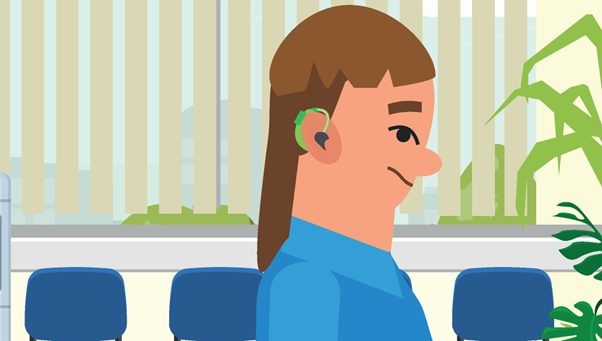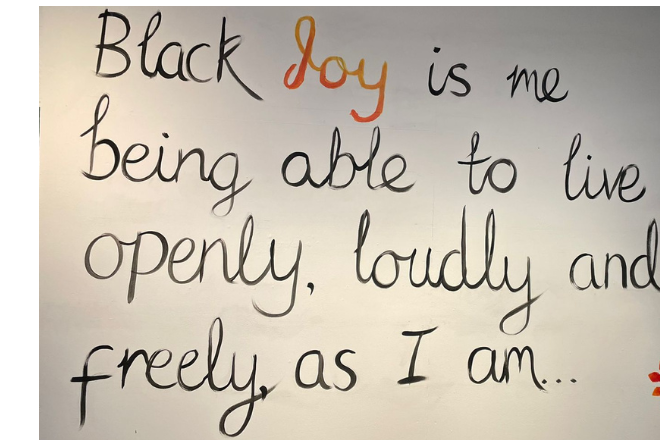A conversation with our co-producer Al about his experience navigating payment policies and what it feels like to open up about personal circumstances.
One way to describe our co-creation sessions would be a sort of brain-refresh. So many ideas come together, we’re left buzzing with inspiration each time. The payment policy co-creation sessions in May was no exception. A special SketchNote and our session summary (also available as a Word doc) captured the strategic thinking (strategic thinking is a mental or thinking process applied by an individual in the context of achieving a goal or set of goals). This blog was created by Al and Rory who chatted on the phone about the subtle differences within payment itself and what it feels like to discuss the tricky subject of payment.
Not everyone will agree with Al’s personal perspective, this blog is an example of mixed personal experience of payment to highlight the importance of an individual and flexible approach. There were lots of different views expressed at our sessions, and it can be a lot to take in at first. But that is the point of coming together to co-produce, to share various experiences and be part of a very rich and equally challenging conversation. Al noted: ‘The co-creation session about payment was a difficult one, I think. I came to the discussion from a very different place compared to a lot of other people because of my experience. I’ve been a trustee for a voluntary community sector organisation for nearly four years now and for everything I do with them, I don’t get paid. I was quite used to that, going into that with expecting nothing.’
Accepting that payment may not always be comfortable for everyone can be the solution in some cases. Al explained that receiving compensation “out of nowhere” can be quite shocking. ‘I wouldn’t take it. I just thought “No, that isn’t why I’m here”. But they insisted, saying “we really value your contribution.” It might be because of my background but, I always felt you have to prove your worth to people. You have to prove why you’re there. The cause, working in a co-productive way and having an influence, is more important. With my continued involvement, I’ve shown co-production in action so much so that the NHS trust has given us money to pay for vouchers for people’s time. All those meetings that I’ve gone to where I got nothing, I knew I was there to make services better for people like me. Now they have a budget to pay people, and when I got that news, I was so happy because I know, even though I wasn’t part of that discussion, that discussion only took place because I had forced it there and then they felt that they needed to talk about it. I feel that by making sure that I’ve proven my worth, the skill and the talent that we as service users and carers have is now recognised.’
Having a real relationship between contributors and the people organising the payment for the contribution can make or break payment policies. When asked about positive experiences, Al went on to say “When I feel I’ve done something really good, somebody has given me a pat on the back, I can go and spend my vouchers or money to actually buy something for me because I’ve done something for somebody else who valued my time, and I feel as a productive person. When people say thank you for the work I do, I think “There must be some truth to that”. This is why payment is really important, showing that you value people for their worth, whether that’s a £20 voucher, it’s actually what goes behind that. It shows that you are being valued. The last time I did some work for the Collective, I received a lovely card. Whenever I feel down, or unworthy I suppose, it means a lot to actually have proof like that card that says to me that I’ve helped.’
Issues with benefits complications was raised as well. Al shared his views on putting people with lived experience on payroll, something which may have negative consequences for people in certain circumstances. ‘It was quite sad for me in a lot of ways because we had so much to offer when attending meetings, and got so much out of it in terms of experience and confidence, I wondered, is there no other way? When I suggested a voucher scheme instead, there was no talk about it, there’s no understanding that, actually, what you’re doing is you are stopping people from being involved. You set a precedent on how you value people for their time, and then people don’t want to come because you don’t give them a choice. These decisions about payment are so far-reaching, I think it’s a massive mistake to not be open to anything else. There’s no creative way of thinking about it and it is so limiting. You are forcing people to go to the Department of Work and Pensions once a month for £75, and of course, sometimes they say “Oh, that’s going to affect your benefits” and unfortunately it doesn’t just affect it for that month, it affects it for a couple of months. By the time you clear up the issue and get back on an even keel, it’s time for another workshop and you don’t feel very comfortable because you are going to cause problems for your living, basically.’

Having little understanding of people’s circumstances seems to cause the most trouble. When trying to communicate the problem, Al received the response that people should explain that they are indeed allowed to earn up to a certain amount a week. ‘To that I say, yes, but the issue then becomes that when it’s time to reassess the money that you’re supposed to be receiving, and accessing things like personal independence payment, they actually say well, you’re doing all this work, we’re not going to award you any points. Then you end up in a massive cycle of having to go to tribunal to get your money. It takes nine to twelve months for you to get to tribunal. Well, where is the incentive and where is the protection for people who turn up to meetings such as this co-creation session, so that they can go away and have no stress about payment?’
Though finding it a difficult one to discuss due to the differences in experiences, Al highlighted the immediate value of having an open discussion about payment in the environment that the Collective offers. ‘Having a tribe or collective is important. Coming on and hearing others have a really good rant about this issue, actually made me feel “Ah, finally, somebody gets it, they understand it.”. Although we all do co-production maybe slightly differently, we all have a singular aim, which is to get people involved in doing co-production and be part of that journey. Coming from different folds, you do think that you are on your own. Having that understanding, finding those people who think like me, although they might be in a different position, they understand. That, for me, is another way of feeling valued, knowing that you are being heard and most importantly being understood.’
Our next steps
Summarising our talk, Al made it clear that asking, in the right way and at the right time, makes the biggest difference from his point of view: ‘There needs to be a conversation to see what payment each person is comfortable to accept, what the rate of pay is, and how much of that work each person is doing. There are people further along the co-production journey who have built up a lot of self-confidence and knowledge, and are aware of all forms of payment, but for everyone’s benefit it is best to ask what options people are comfortable with and aware of.’
Though our phone conversation ended here, the co-creation of our payment policy is still under way. A draft payment policy will be available soon for co-creation via a document (online or offline) before a final revision. Whether or not you’ve been part of our sessions so far, please send us your thoughts, feedback and ideas to coproduction@ucl.ac.uk and be sure to sign up to our monthly updates! You can also connect with us on Twitter.




.png)
.jpg)


.png)
.png)

.png)

.png)